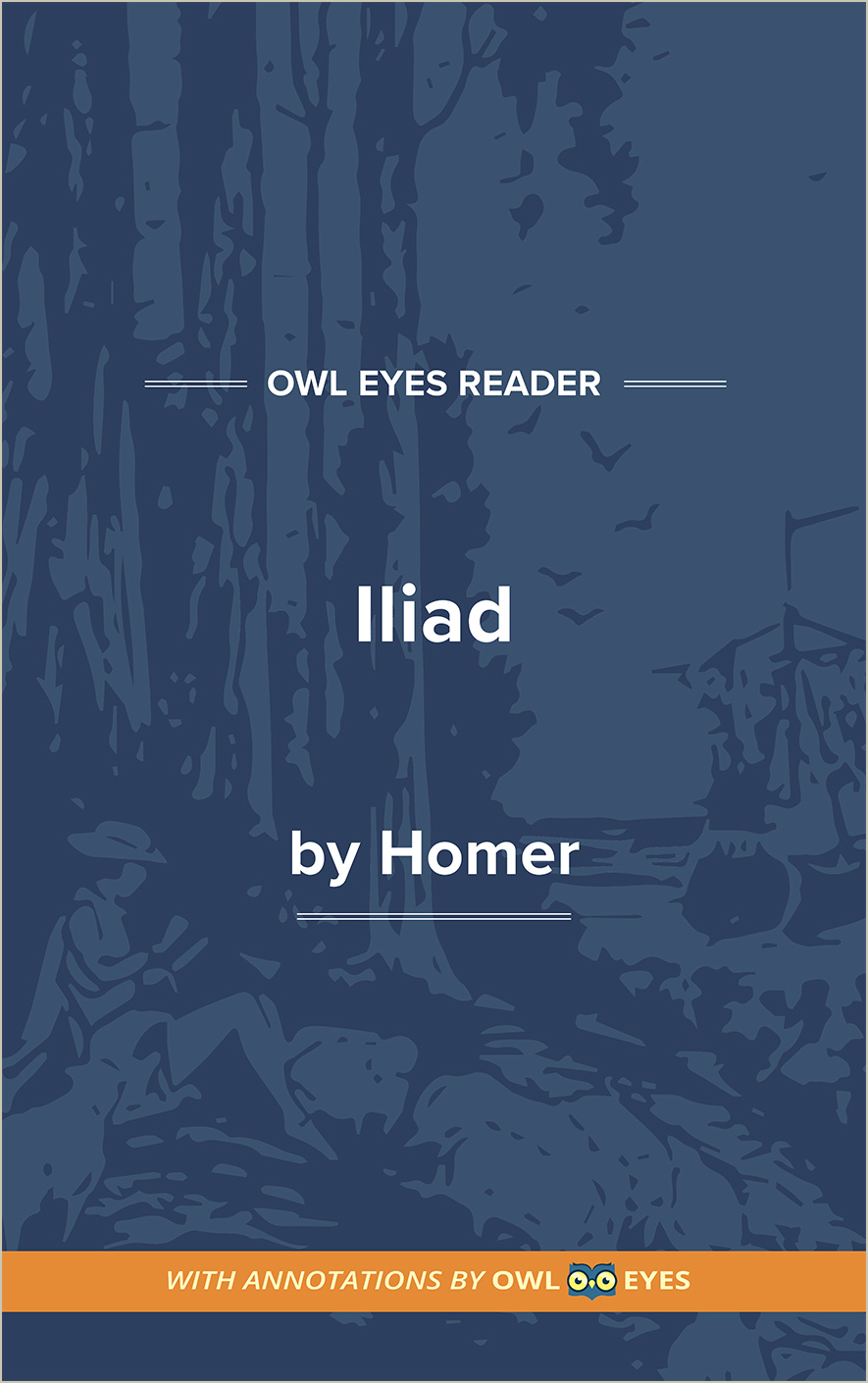Analysis Pages
Literary Devices in Iliad
Allusion: Due to the long tradition of oral literature that became central to the preservation of ancient Greek culture, the Iliad is riddled with allusions to both past and future events surrounding the particular time the story is set. Because of the popularity of mythological retellings, ancient Greek audiences would have already been familiar with many of the myths and lore that form the foundation of the Iliad. Homer is aware of this, and does not take much time explaining the events that had already occurred or would occur shortly after the events of the story. He instead alludes to them and allows the reader to fill in the blanks.
Foreshadowing: Ancient Greek literature and foreshadowing go hand-in-hand largely due to the inclusion of prophecy and fate in most, if not all, storylines surrounding the Greek storytelling tradition. We are provided with the knowledge that Troy will eventually fall, even if we do not read it within the Iliad, because Homer offers the information freely in the form of prophecy. We also learn the fates of many characters in the same way before they meet their ends.
Irony: The Iliad includes many examples of the various kinds of irony, the most notable the dramatic irony that exists between the reader’s knowledge of the gods’ mediation of the war and the resulting actions of mortals. The war is frequently paused or interrupted while the gods debate how an event will play out and how the characters’ fates change as a result. This puts the reader in the know before characters ever actually play out the will of the gods.
In Medias Res: The plot of the Iliad begins in medias res, or in the middle of the action. There is little build up to conflict; instead, Homer drops readers into the war many years after its beginning. He chooses to start with the capture of Chryseis and Briseis because this is the event that will spur Achilles to leave the battlefield and sets the stage for bigger conflicts later. It was assumed that readers would know the events that sparked the Trojan War, so there is not a great need for immediate exposition.
Literary Devices Examples in Iliad:
Book I
🔒"god of the silver bow..." See in text (Book I)
"SING, O GODDESS..." See in text (Book I)
Book IV
🔒"his bowels came gushing out..." See in text (Book IV)
"darkness veiled his eyes..." See in text (Book IV)
Book V
🔒"The exploits of Diomed..." See in text (Book V)
Book VII
🔒"Far-Darter..." See in text (Book VII)
Book X
🔒"Take me alive; I will ransom myself;..." See in text (Book X)
Book XI
🔒"the beginning of the ill that presently befell him...." See in text (Book XI)
"As a lion fastens on the fawns of a hind and crushes them in his great jaws, robbing them of their tender life while he is on his way back to his lair—the hind can do nothing for them even though she be close by, for she is in an agony of fear, and flies through the thick forest, sweating, and at her utmost speed before the mighty monster..." See in text (Book XI)
Book XIII
🔒"the vein that runs all the way up the back to the neck..." See in text (Book XIII)
Book XV
🔒"“Be men, my friends,” he cried, “and respect one another's good opinion..." See in text (Book XV)
"Achilles will then send his comrade Patroclus into battle, and Hector will kill him in front of Ilius after he has slain many warriors, and among them my own noble son Sarpedon. Achilles will kill Hector to avenge Patroclus, and from that time I will bring it about that the Achaeans shall persistently drive the Trojans back till they fulfil the counsels of Minerva and take Ilius..." See in text (Book XV)
Book XVIII
🔒"First he shaped the shield..." See in text (Book XVIII)
Book XX
🔒"As a fire raging in some mountain glen after long drought—and the dense forest is in a blaze, while the wind carries great tongues of fire in every direction—even so furiously did Achilles rage..." See in text (Book XX)
"Such do I declare my blood and lineage..." See in text (Book XX)
Book XXIII
🔒"as close behind him as the shuttle is to a woman's bosom when she throws the woof across the warp and holds it close up to her..." See in text (Book XXIII)
"I will not give up the mare, and he that will fight me for her, let him come on.”..." See in text (Book XXIII)
Book XXIV
🔒"The old man went straight into the house where Achilles, loved of the gods, was sitting...." See in text (Book XXIV)

